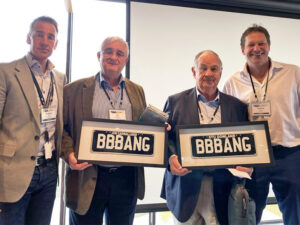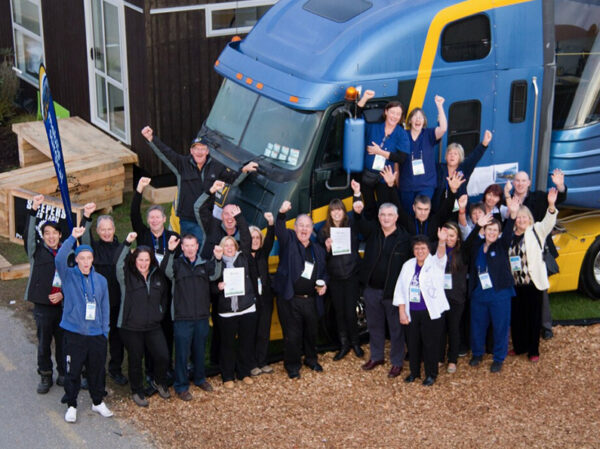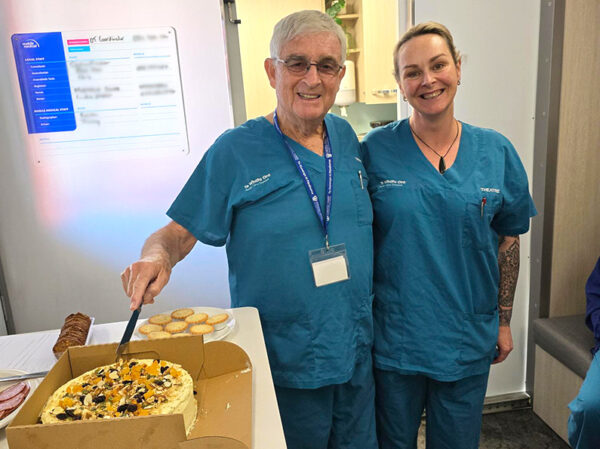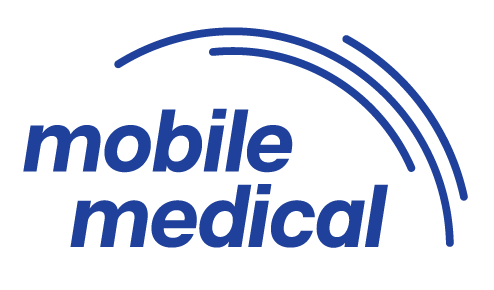Dr Jon Cadwallader is a dedicated urologist with 34 years of experience and co-founded a groundbreaking mobile kidney stone treatment service three decades ago.
 Jon tirelessly advocated for mobile delivery, believing it could bridge gaps in healthcare access. His relentless promotion and dedication to these concepts have left a lasting legacy, ensuring that quality medical care reaches even the most remote areas. His contributions have truly transformed the landscape of modern healthcare.
Jon tirelessly advocated for mobile delivery, believing it could bridge gaps in healthcare access. His relentless promotion and dedication to these concepts have left a lasting legacy, ensuring that quality medical care reaches even the most remote areas. His contributions have truly transformed the landscape of modern healthcare.
As he prepares for retirement this month, his legacy of innovation and compassionate care leaves an enduring impact on both patients and the medical community.
Urology particularly intrigued Jon because of the diverse opportunities it offers and qualified as a urological surgeon in 1985. He travelled overseas to the UK where he obtained a position as senior registrar at St Thomas’ Hospital in London. At that time, St Thomas’ Hospital was also the second site of the second lithotripter in the UK, so he had the opportunity to be involved and obtained early experience of lithotripsy treatment. When he returned to New Zealand this experience was invaluable considering the opportunity in establishing lithotripsy in the country. He was appointed as a urology consultant at Auckland Hospital in 1986/87 and his involvement in that position was associated with being a medical director of a spinal unit in South Auckland. He was also appointed as a lecturer in surgery at the Auckland of University medical school, where he has inspired and mentored many future medical professionals.
Looking at the problems of establishing lithotripsy in New Zealand, such as funding, politics and technology during the time, he met with Dr Stu Gowland who was a consultant in Christchurch – a forward-thinking individual who has an extreme interest in technology. It was Stu’s idea of sharing high-cost technology nationally. And it was the combined vision between Stu and Jon which led to meaningful conversations and plans to develop the concept of establishing mobile technology versus fixed site technology.
In 1995 they established Mobile Medical Technology. They both recognised the significant barriers of rural patients in accessing specialised urological care. Traditional healthcare facilities were often too far away, making it difficult for rural patients to receive timely and effective treatment. So, from the outset, the new mobile service aimed to bridge this gap with the primary focus to bring advanced medical technology directly to rural communities. At the beginning, it wasn’t easy. A lithotripter machine is expensive technology and there are a limited number of stones here in New Zealand.
“There were issues of developing the concept, including raising money to buy the machine, building the first vehicle, and at the same time, we were building a specialist urology centre in Auckland,” Jon says, referring to the specialist urology centre, Urology 161, which he established with two other urologists. Despite the issues, there were many who recognised the potential and innovation behind the service. They had support from Helen Clark, the then Prime Minister of New Zealand and Annette King, former Minister of Health, who saw the immense benefits of bringing advanced medical care directly to rural patients. Mobile Medical started with a five-year contract, which was then renewed for another five years.
In 2025 the company celebrates its 30th anniversary and has successfully treated more than 16,000 patients. The success of the business venture, Jon says, was largely due to the buy-in from most of the urologists in New Zealand, as well as robust support and funding from central government, which was instrumental.
 “The UK was developing a transportable hospital for rural England; they were these very sophisticated temporary support units/pods that came out of Nottingham. A lot of people visited the company looking at mobile solutions.”
“The UK was developing a transportable hospital for rural England; they were these very sophisticated temporary support units/pods that came out of Nottingham. A lot of people visited the company looking at mobile solutions.”
“We were unique in the world when you look back at it. New Zealand is a unique, long thin country, and there’s the Cook Strait, so there were logistical challenges while trying to keep a unified business. As well as medical politics in the background. It wasn’t easy.”
“We all got to know each other; the guys (urologists) were very supportive but there were difficult times when it came to cashflow. It was an evolving business.”
“The mobile lithotripsy unit was the embryo of mobile units in the country.”
Jon and Stu have a very close friendship and travelled the world together to look at mobile concepts. “It was novel at the time.” Their shared vision and dedication have left a legacy in the field of urology and mobile health services. Mobile Medical remains their greatest achievement and when they reflect on their journey, they both smile at the challenges they overcame. Starting the business tested their limits, but it also strengthened their bond. Their innovative approach not only enhanced the efficiency of urological treatments but also set a new standard in the field, benefiting countless patients. Their dedication to reaching underserved populations and providing equitable healthcare has been and remains a cornerstone of the service’s enduring success and impact.
“I’m very proud of being involved. I’m not one to come to the fore very much, but it’s been a great privilege to be part of the (Mobile Medical) journey and a great pleasure of meeting businesspeople.”
“I’m a people-person. It’s a great privilege to be a surgeon, to be a doctor, to look after people.”
“Urological symptoms have a significant social impact on individuals. Over 10 percent of the population experiences frequent incontinence. Incontinence is devastating and such we are able to make a major contribution to their quality of life.”
“Jon would make sure everyone on the unit was well informed about how ESWL worked. He would always take the time to explain this to anyone that was visiting, such as nursing students or registrars. He very much appreciated the skills of the MRTs and would acknowledge this and was always more than happy to be guided by the MRTs recommendations for the course of the treatment,” Simon Felton, charge MIT, Mobile Medical, says. “Jon was always keen to use U/S as a preferred targeting technique for kidney stones and again liked to show people how this worked.”
Several years after the successful launch of the mobile lithotripsy unit, the concept of a mobile surgical service was envisioned by Dr Alistair Yule, a Dunedin-based general surgeon. This service aimed to bring medical care closer to rural patients. Having previously developed the mobile lithotripsy unit, Stu and Jon were well-equipped to bring Dr Yule’s vision to life, with strong support from rural communities. In 2002, the Mobile Surgical Unit – Te Waka Hauora went on the road to deliver low risk, elective day surgery. In the past two decades, the service has performed more than 33,000 treatments, further enhancing their expertise in mobile healthcare solutions.
There was a turning point with the success of Mobile Medical which prompted looking at other opportunities of mobile services. Meeting with Stu over a casual cup of coffee in 2007, Jon sketched a drawing on a napkin. “What’s that?” Stu enquired. “A ship.” Jon responded. It was this simple drawing that symbolised a vision for expanding mobile solutions and represented a breakthrough in their thinking: Why limit themselves to just mobile units on wheels? They realised the potential for mobile technology to revolutionise various aspects of healthcare. Their innovative mindset and willingness to think beyond conventional boundaries have been key drivers in their ongoing journey to improve patient care. Although the concept of a pacific medical ship to deliver healthcare, similar to other ships in Africa and off Australia, went as far as initial design concepts, unfortunately it never progressed further due to a number of issues, including politics, world health issues and funding at the time.
“The concept of a pacific medical ship remains to this day a distinct opportunity for improving ‘the rural pacific’,” Jon says.
 Nevertheless, Jon’s innovative spirit didn’t stop there; he also conceptualised a mobile PET-CT unit, bringing advanced imaging to patients’ doorsteps. An idea that finally came to fruition earlier this year when Mobile Imaging was launched – the Southern Hemisphere’s first mobile PET-CT unit delivering state-of-the-art cancer diagnostics to those outside major metropolitan cities. The service has been rolled out to Rotorua, Palmerston North, Lower Hutt, and Dunedin, with more locations underway.
Nevertheless, Jon’s innovative spirit didn’t stop there; he also conceptualised a mobile PET-CT unit, bringing advanced imaging to patients’ doorsteps. An idea that finally came to fruition earlier this year when Mobile Imaging was launched – the Southern Hemisphere’s first mobile PET-CT unit delivering state-of-the-art cancer diagnostics to those outside major metropolitan cities. The service has been rolled out to Rotorua, Palmerston North, Lower Hutt, and Dunedin, with more locations underway.
“I’m delighted it is planned to honour Jon for his contributions to urology over many years. The contribution is not only to the large number of his patients but also to the associated hospitals and of course to urology in general across the country. Jon has been involved in many projects including, as mentioned above, the development and operation of the mobile lithotripsy unit and the mobile surgical unit and potentially others,” Stu Gowland, co-founder of Mobile Medical.
“As I look back over the many years of our association, I have always reflected on one of his great strengths that is his ability to never be suspicious of new or different ideas. This is not an idle observation but is relatively unique and often lacking in the medical fraternity. Jon’s wife Robyn was well aware of these contributions and was a great support. It is hoped young people entering medicine will seek to emulate the open-minded attitudes discussed.”
Beyond his primary specialties, Jon has a background as a qualified veterinary surgeon and has a keen interest in fertility technologies, specifically harvesting of sperm and assisted fertility management associated with Intracytoplasmic sperm injection (ICSI). This interest, he says, goes back to his veterinary training where the industry was 20 years ahead of human fertility technology. Jon was part of the founding team who developed ICSI in New Zealand, further broadening his impact on patient care.
As Jon steps into this exciting new chapter of his life, the team at Mobile Health Group wish him all the best. Thank you, Jon, for all the wonderful memories and contributions – go forth and have fun!
“Jon has been a cornerstone of Mobile Health Group since its earliest days, bringing vision, heart and humanity to our journey. With Stu Gowland, Jon’s steady hand and forward-thinking shaped our path, always seeking new horizons. His jovial spirit and genuine care for the team laid the foundation of the ‘secret sauce’ that defines our culture today. Jon’s legacy is one of leadership — a true people person who always ensured we are more than just a team; we are a family.” Mark Eager, chief executive, Mobile Health Group, says.
Main picture: Pictured (L-R): Stephen Marks, urologist, Dr Jon Cadwallader and Dr Stu Gowland holding the well-recognised number plate of the first mobile lithotripsy unit, and Andrew Williams, urologist. Urology Conference 2019, Christchurch.
Second picture right: Dr Stu Gowland and Dr Jon Cadwallader (middle) standing with the Mobile Surgical Unit – Te Waka Hauora with the team at Fieldays 2011.
Bottom picture: Dr Jon Cadwallader with Nicky Atwood, theatre associate clinical nurse manager at Gisborne Hospital, on Jon’s last day on the mobile lithotripsy unit in December 2024.
